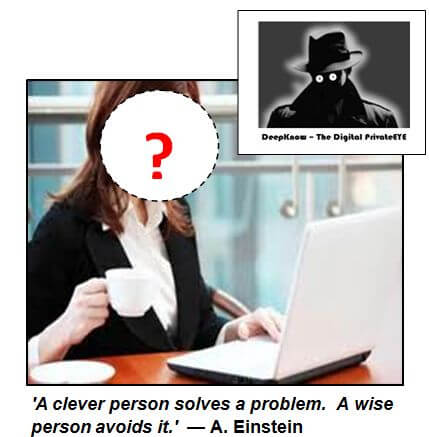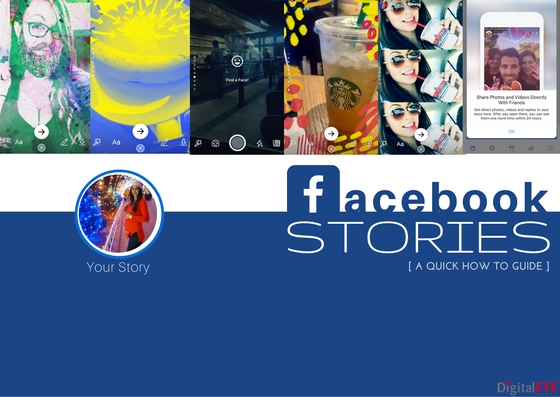Anonymous Web Browsing Can Protect You from Cybercrooks
Remaining anonymous online can protect you from malicious types out to spy on you or steal your identity for financial gain — spammers and scammers and snoops and crooks alike.
The DigitalEYE team wants to help you better understand how personal data about you is captured and shared online. Our resident expert on this subject is DeepKnow — the Digital PrivateEYE, nom de guerre of one of our battle-tested online veterans who fights in the valiant struggle for the cyberrights — particularly the right to privacy — of all Americans who use the Internet.
DeepKnow found information you can use to reduce the odds that every one of your clicks gets tracked, archived and shared.
In “How to Browse the Web Anonymously,” Marc Saltzman of Digital Crave provides a few suggestions on where to start.
Your IP Address Gives You Away
How does Facebook know to show you ads for your local gym, supermarket or college? This is because your computer’s unique Internet Protocol (IP) address, assigned by your ISP, reveals your geographical whereabouts. Even if your computer generates a different IP address every time you boot up or log online, this number (e.g. 220.165.119.12) can still reveal your general location.
In addition to your IP address, any webserver can detect
— your referrer (the site from which you are linking).
— the user-agent (the program you are using to browse the Web).
— your operating system.
How to Hide Online
There are many different solutions that can hide your Internet connection, allowing you to remain anonymous while online. Some are websites, such as free “online proxy servers” that conceal your identity — simply point the web address (URL) to the proxy server and surf right from their website.
Proxy.org recommends Proxify® and Socksify® instead of any open proxy.
Tor is free software that defends you against Internet surveillance. Short for “The Onion Router” – which gets its name for its “layered” approach to the encryption process – Tor provides online anonymity as the software routes Internet traffic through a worldwide volunteer network of servers to conceal your location or online usage patterns.
In some cases, software to encrypt your connection is kept on a USB drive, which can enable you to remain safe and secure even when using a public PC.
SurfEasy ($59.99) is a tiny USB key that fits into a credit card-shaped case to be kept in your wallet. A free alternative is called Tails, which can be downloaded and installed onto a USB stick to run independently of the computer’s original operating system.
Browser Power
It’s somewhat easy to control your privacy settings directly in your Web browser.
— Disable cookies — tiny text files stored on your computer with information about where you’ve been online, passwords and other info. You should also delete your browser history to cover your tracks. All major Web browsers — such as Internet Explorer, Firefox, Chrome or Safari — allow you to delete your surfing history. Simply go to the Options or Settings in your favorite browser and you’ll see how to do this.
— Turn off auto-complete – or someone on your computer could type in a few letters in a search engine or web address (URL) bar and any recent places you visited could fill in automatically. And don’t click to allow sites to “remember my password” or someone could gain access to your private or financial information.
— See if your Web browser has settings for surfing incognito — most of the major browsers do today. By enabling these privacy settings, your browser won’t save any history (and download history), search queries, cookies or passwords.
Stay tuned for more…DeepKnow – the Digital PrivateEYE will be keeping you informed about the latest developments affecting your online privacy.










